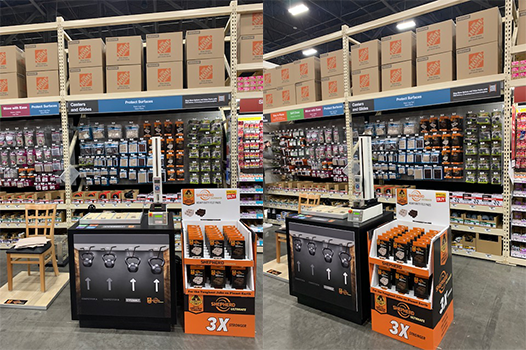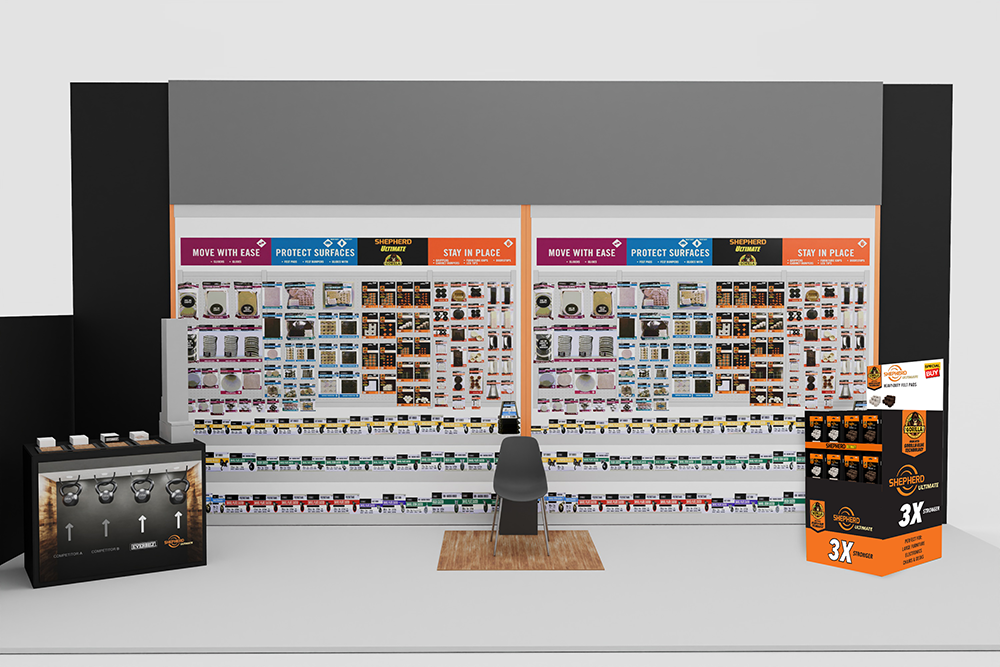We recently spoke with Magnet's Strategy, Marketing, and Sales Service Director, Dave Sluka. Founded in 1984 as a 501(c)(3) nonprofit organization, MAGNET is the Northeast Ohio partner of the Ohio Manufacturing Extension Partnership (Ohio MEP). We asked Dave how Magnet and its vendor partners help manufacturers with their marketing strategies.

Can you provide an overview of Magnet and how they can help manufacturers with their marketing initiatives?
MAGNET helps small to mid-sized manufacturers identify and overcome barriers to growth in various areas, such as operational efficiency, technology and automation, workforce development, and general growth strategies supported by more effective sales and marketing activities. MAGNET's SMS (Strategy, Marketing, and Sales) practice, along with its vast and vetted team of service partners, provides help in developing a multi-channel marketing strategy to include all of the tactical steps necessary to execute, including lead generation, search engine optimization (SEO), social media, website development, rebranding and messaging, as well as new product development and launch support.
How does your organization identify and select manufacturers to collaborate with on marketing initiatives?
Thankfully, many manufacturers are coming to us for this support due to the strong brand recognition that MAGNET has been fortunate enough to develop in Northeast Ohio. We also do a tremendous amount of outreach within the 24 counties we serve through relationships with local chambers and economic development organizations that serve the manufacturing community. Most small to mid-sized manufacturers underinvest (and often don't even see the value) in consistent and prescriptive marketing activities, so a big part of our job is educating them on the need for and impact of making these investments.
How does Magnet utilize service partners to help manufacturers?
This is the key to our bench strength and breadth of service we provide. While MAGNET does have its internal team of experts in each practice area, meeting the needs of the local manufacturing community requires us to partner with service providers who are singularly focused on their craft. This allows us to select a service partner that best meets our client's needs from a budgetary and service offering perspective. Manufacturers come to us as their trusted advisors, knowing that we are selective regarding those we choose as partners, focused on ensuring that those we partner with share our mission, vision, and values and are committed to helping manufacturing grow in Northeast Ohio.
What made Magnet partner with Spark to help manufacturers?
We brought Spark on as a service partner because of their history of working with manufacturing businesses, which results in Spark having a deep understanding of the unique needs of the types of clients that MAGNET serves. Spark's strong competencies in retail branding and merchandising, which, historically speaking, has yet to be a focus of MAGNET's partnership, allows MAGNET to serve companies it had not been equipped to do so previously. The Spark team's commitment to the local community and the sincere and professional manner in which they represent themselves and interact with those we serve were also crucial.

Can you describe the process of developing tailored marketing strategies in partnership with manufacturers to align with their objectives and the organization's goals?
First, you must understand the manufacturer's objectives and goals. Truly dig into what success looks like. Next, we make sure the manufacturer leverages tools like MAGNET's TOPMAP™. This is MAGNET's simple yet comprehensive process for those organizations interested in growing top-line revenue, whether that growth comes from new customers, new markets, new products, or a combination of any or all of these. The process begins by conducting research to answer questions regarding targets and how they are identified and defined, the company's value proposition and associated messaging, what "proof" you can show your target, and how the company will measure success through KPIs. The process also includes defining call-to-action, implementation processes (to ensure alignment between sales and marketing), tailored marketing strategy, and review for metrics.
How can manufacturers leverage their unique strengths and capabilities to enhance their marketing efforts and brand positioning?
The most crucial factor for a manufacturer to leverage their unique strengths is building the value proposition by identifying the core competencies and strengths, such as product quality, innovation, or supply chain efficiency. Next, match the value proposition with the market's need and build a brand story based on the brand promise, positioning within their territory, the company's foundation story, and partnerships and collaborations with industry experts or complementary brands to amplify the manufacturer's unique capabilities. Finally, investing in research and development is vital to innovate and stay ahead of market trends, leveraging these innovations in marketing campaigns.
How can manufacturers address potential challenges or conflicts when working on marketing strategies?
Manufacturers can address potential challenges or conflicts by leveraging tools like the Rockefeller Habits and associated meeting rhythms to foster open communication and transparency amongst the team to proactively address any disputes or challenges. Manufacturers must also understand what success looks like and establish clear roles, responsibilities, and expectations upfront to minimize misunderstandings. It is paramount that manufacturers always consider what could or could not happen and develop contingency plans to address unexpected issues or changes in market conditions. Finally, Manufacturers need to maintain flexibility in their marketing strategies to accommodate evolving objectives or external factors. Having a clear vision and discipline is crucial to achieving success.
.

What metrics or KPIs should be used to measure the success of marketing efforts in conjunction with manufacturers, and how can they evaluate the return on investment?
Define key performance indicators (KPIs) aligned with the manufacturer's business objectives, such as sales revenue, numbers of leads, target audience engagement, media metrics, and/or brand awareness. Implement tracking and analytics systems to monitor the performance of marketing campaigns while regularly analyzing the data to assess the effectiveness of different marketing channels and tactics. Calculate return on investment (ROI) by comparing the costs of marketing activities to the generated revenue or other defined outcomes.
How can manufacturers leverage digital marketing channels and technologies to reach their target audience effectively?
Manufacturers should identify and create the target audience's buyer journey and persona, highlighting the preferred digital platforms and channels. Using this journey, develop a digital marketing strategy and plan encompassing Paid, Owned, and Earned Media (POEM) that could include SEO/SEM, organic/paid social media, content marketing, email marketing, and automation. Manufacturers should utilize A/B testing to help create data-driven insights to personalize marketing messages and optimize targeting. Manufacturers should be flexible and experiment with emerging technologies such as AI and machine learning to help create engaging brand experiences and be more productive.
How can a manufacturer ensure marketing efforts align with the organization's brand guidelines and values?
Manufacturers should establish clear brand guidelines outlining the brand's identity, voice, tone, and visual elements. Provide training and resources to teams to ensure they understand and adhere to brand guidelines. Finally, manufacturers should implement approval processes and checkpoints to review marketing materials before publication.
What is the most significant trend you see utilized in marketing for manufacturers?
One of the significant trends in marketing for manufacturers is the increasing adoption of digital technologies and data-driven strategies that enable them to engage with customers on a more personal level. Manufacturers embrace digital tools to streamline processes, become more personalized, and enhance customer experiences. Manufacturers can tailor their marketing messages to individual preferences and behaviors by leveraging data analytics and AI to personalize marketing efforts, leading to higher engagement and conversion rates. Those with a position invest in content marketing to establish themselves as thought leaders in their respective industries. Manufacturers can demonstrate their expertise, educate their audience, and build trust with potential customers by creating high-quality content such as articles, white-papers, case studies, and videos.
Want assistance planning your manufacturer's marketing strategy? Spark and MAGNET are here to help!

No Comments.